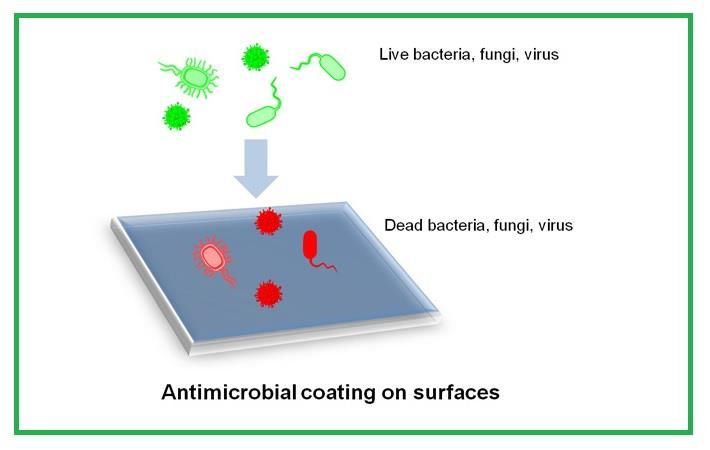
A one-step curable anti-microbial coating, which when coated on different surfaces such as textile, plastic and so on could kill a range of virus types including COVID-19, has been developed by researchers at the Jawaharlal Nehru Centre for Advanced Scientific Research (JNCASR), an autonomous institution under the department of science and technology.
This covalent coating, the research paper about which has been accepted in the journal Applied Material and Interfaces, has been found to completely kill influenza virus as well as resistant pathogenic bacteria and fungi, including methicillin-resistant Staphylococcus aureus and fluconazole-resistant C. albicans spp, the department of science and technology said on its website.
The recent outbreak of SARS-CoV-2 has created an unprecedented stir in the global public health. Corona virus, like influenza, is also an enveloped virus. Therefore, it is anticipated that the coating may inactivate SARS-CoV-2 upon contact and can help prevent contamination if coated on various surfaces, the statement said.
“Till date, to the best of our knowledge, there is no covalent coating strategy which can kill all viruses, bacteria and fungi,” said the researchers. The coating can be fabricated on a variety of surfaces, and its ease and robustness eliminate the necessity of skilled personnel for procurement of the coating.
The molecules developed have an ability to chemically cross-link with different surfaces upon UV irradiation. Upon the formation of the coating, it has been shown to permeabilise the membranes of pathogens (i.e. bacteria) leading to their inactivation.
Molecules were designed, keeping in mind their optimum solubility in a wide range of solvents (such as water, ethanol, chloroform etc.) and a cost-effective three to four-step synthetic strategy with easy purification and high yield. The molecules were then immobilised on different substrates such as cotton, polyurethane, polypropylene, polystyrene, etc, which construct majority of the objects we see around us. In brief, for coating on cotton, the sheets were dipped in a water solution of the compounds whereas, for other cases, ethanolic substrates were drop-casted on them followed by UV irradiation. After coating, the surfaces were evaluated for their antibacterial, antifungal, and antiviral activity.
Considering the current corona virus outbreak, if shown to be active, the molecule can be synthesised in large scale through a CRO (Contract Research Organization) and can be coated on various personal protective tools such as masks, gloves, gowns, etc in collaboration with the private organisations. The molecules can also be coated on other medical devices and tools to avoid hospital-acquired or nosocomial infections.
Fibre2Fashion News Desk (RKS)